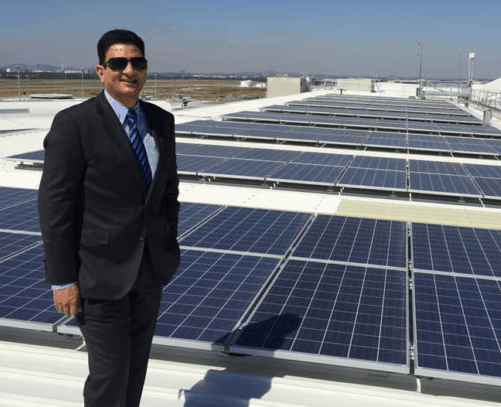Newcastle Airport in Australia has recently announced a new agreement with energy provider Snowy Hydro, aimed at achieving 100% renewable energy usage for the airport. This agreement is a major step towards reducing the airport’s carbon footprint and promoting sustainability in the aviation industry.
According to Jonathan Levy, Director of Policy and Strategy at the Environmental Defense Fund, “This is a great step forward in reducing the environmental impact of the aviation industry. By committing to 100% renewable energy usage, Newcastle Airport is showing leadership in the sector and setting an example for other airports to follow.”
Under the agreement, Snowy Hydro will provide Newcastle Airport with 100% renewable energy from sources such as wind, solar, and hydro power. This will include the installation of solar panels on the airport’s terminal building, as well as the purchase of renewable energy certificates to offset any remaining emissions.
Peter Cock, CEO of the Regional Aviation Association of Australia, commented that “This is an exciting development for Newcastle Airport and the wider region. By switching to renewable energy sources, the airport is not only reducing its carbon footprint but also demonstrating its commitment to sustainable tourism. This is likely to be a major drawcard for environmentally conscious travelers.”
The move towards renewable energy is part of Newcastle Airport’s wider sustainability strategy, which also includes initiatives such as reducing waste and promoting sustainable transport options. The airport aims to become carbon neutral by 2025, and this new agreement with Snowy Hydro will play a key role in achieving this goal.
The aviation industry is one of the largest contributors to greenhouse gas emissions, and airports have a significant role to play in reducing the industry’s impact on the environment. Newcastle Airport’s commitment to renewable energy is therefore an important step towards a more sustainable aviation industry, and it sets an example for other airports to follow.
In addition to its environmental benefits, the agreement with Snowy Hydro is also expected to result in cost savings for Newcastle Airport. Renewable energy sources are becoming increasingly competitive with traditional fossil fuels, and by switching to renewable energy, the airport is likely to see a reduction in its energy bills over time.
The move towards renewable energy is also likely to have wider economic benefits for the region. By promoting sustainability and reducing its carbon footprint, Newcastle Airport is positioning itself as a leader in sustainable tourism. This is likely to appeal to environmentally conscious travelers, and could help to boost tourism in the region.
Overall, Newcastle Airport’s new agreement with Snowy Hydro is a positive step towards a more sustainable aviation industry. By committing to 100% renewable energy usage, the airport is setting an example for other airports to follow and demonstrating its commitment to reducing its impact on the environment. With initiatives like this, the aviation industry can continue to make progress towards a more sustainable future.


